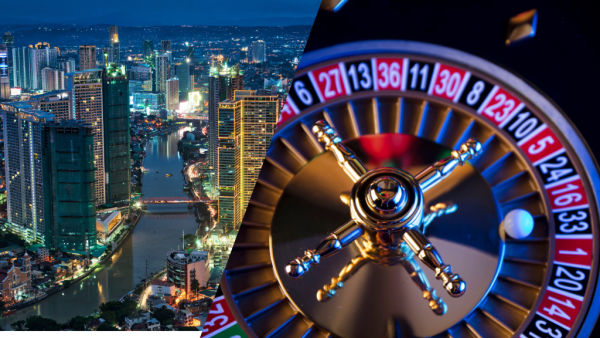Words by Nick Chapman, Turnkey Casino Manager and consultant to the industry. Speaker, educator and occasional writer
Prescient History
Whilst not essential to determine the future, the past is usually helpful, although I shouldn’t trawl out facts that you can google in seconds. Suffice to say that gambling has been around for thousands of years and the more recognisable bricks and mortar ones around 400 years. It started with dice and the precursors to craps in Asia a few thousand years ago. Most games used in traditional casinos have been ultimately usurped by Roulette – a French game popularised in the 18th century – after Francois and Louis Blanc introduced the single zero version into Europe. Early versions of the wheel had 28 numbers, more than one zero and various other interventions to improve the house edge. This journey has culminated in what we have today and the evolution of the house edge on the roulette wheel has some important lessons for us to take into the future.
The casino insider perspective
 The relevant part of how we got here is lodged in the recent insider history of the Casino. As most Table Casino Managers have experienced, their performance has depended on their hold percentage (revenue as a percentage of total buy in) as a measure of success and their ability to increase that number. It differs obviously through various factors, not least the games offered and the proportion of turnover on each. This situation is brought about by the absence of an exact turnover figure and the certainty of precision. The higher hold delivers a margin of relative safety to the person interpreting the number who no doubt has to consequently pass it on to shareholders. All along the reporting chain these responses are being driven by the emotive flight and fight triggers, the severity of which depends on the interpretation of those numbers. Volatility, calendar reporting, individual player stories and historic results become weapons in the fight to avoid the flight. This segment could command an article all of its own. To be succinct and roughly encapsulate many historic tables strategies: The more money and the quicker it is taken engenders a sense of accomplishment for those operating the house.
The relevant part of how we got here is lodged in the recent insider history of the Casino. As most Table Casino Managers have experienced, their performance has depended on their hold percentage (revenue as a percentage of total buy in) as a measure of success and their ability to increase that number. It differs obviously through various factors, not least the games offered and the proportion of turnover on each. This situation is brought about by the absence of an exact turnover figure and the certainty of precision. The higher hold delivers a margin of relative safety to the person interpreting the number who no doubt has to consequently pass it on to shareholders. All along the reporting chain these responses are being driven by the emotive flight and fight triggers, the severity of which depends on the interpretation of those numbers. Volatility, calendar reporting, individual player stories and historic results become weapons in the fight to avoid the flight. This segment could command an article all of its own. To be succinct and roughly encapsulate many historic tables strategies: The more money and the quicker it is taken engenders a sense of accomplishment for those operating the house.
This reality in the past often propelled these strategies. Slots, by virtue of the accurate turnover number and relative certainty of their reporting do not suffer many of these inconsistencies. Despite this many in the industry measure and are measured on their short-term revenues. The equivalent would be to judge the performance of a CEO of a company that has just increased the price of their main product over the period of a week. It may result in short term revenue but ultimately it will be the market that determines their tolerance for his or her actions. Online gaming is now severely testing that market tolerance. Regularly, insufficient consideration is given to the house edge, return to player, and the effect it has on what will ultimately determine how casinos perform – the customer experience.
The customer experience
Most would agree that this is where the battle for the heart and soul of the patron and his revenue is won and lost. However, the interpretation of how this experience is enhanced optimally differs greatly. These subjective views are informed by the background of the person having the opinion. Traditional customer service norms would dictate a knowledge of the players’ likes and dislikes and to proffer items compiled on the former list. Examples include a nice meal, a preferred drink, a free bet or some form of entertainment. Certainly, these can augment an experience. But adrenalin and associated bodily responses are a primal game, and the experience the customer has sought out is rooted firmly in the odds or the return to player. Shorter term, or individually, these experiences are still subject to the vagaries of mathematics and volatility. But over the long-term average this will be a massively determining factor in the success of these businesses.
Current Challenges
The challenges currently to the business are many and the list exhaustive, whilst differing by location and circumstance. The real and perceived risks include but are not limited to regulation, slowing economies, the current pandemic and online gaming.
- Regulation and its bedfellow – Responsible Gaming – if applied correctly should enhance the environment for operators and customers alike. Responsible Gaming, often seen as a hindrance by the industry should be embraced in order to protect its customers. It may have short term revenue implications, but over the long-term sustainable gambling is for everyone’s benefit, both morally and from a revenue standpoint. Regulation should be applied equally across the industries, but with the relatively recent advent of online Gaming this is not the case currently. Over time this disparity should reduce depending on the duristrictions and at the pace that governments generally move.
- The slowing economy is certainly going to jar those businesses that are no longer profitable or are simply not as profitable as they should be. The current performance of some governments across the globe doesn’t inspire confidence but the overall picture should improve as the economic cycle moves forward. However, hopefully this will have the effect of improving the business model and leave the remaining, leaner, fitter establishments offering an enhanced product.
-
 Covid has been devastatingly disruptive. This has been exacerbated by the differing reactions at government levels, and the picture muddied by the conflicting news and purported evidence that abounds. To the hospitality industry and Casinos in particular this devastation has been marked. The application of common sense can be of great assistance here. Doing what you can – and to be seen to be doing what you can – to safeguard your team members and patrons within the confines of the circumstances you are given is hugely important. Effective management after all includes the consistent application of good judgement and common sense.
Covid has been devastatingly disruptive. This has been exacerbated by the differing reactions at government levels, and the picture muddied by the conflicting news and purported evidence that abounds. To the hospitality industry and Casinos in particular this devastation has been marked. The application of common sense can be of great assistance here. Doing what you can – and to be seen to be doing what you can – to safeguard your team members and patrons within the confines of the circumstances you are given is hugely important. Effective management after all includes the consistent application of good judgement and common sense. - Online Gaming is not going to go away and is clearly where the growth is. Those traditional operations that have embraced it are simply better positioned going forward. Their cumbersome nature often includes additional overheads. There is still time for these companies to branch out and embrace it or incorporate it into their existing business model. It doesn’t require a huge leap of faith to see the connection between a traditional Pit and some online casino offerings. In some respects, it is already late for traditional casinos to adapt, consolidation is already taking place and millennials are in the work place. They are bringing a predilection for smart online technology and esports with them. As their disposable incomes improve over time, they are going to be an increasingly important market segment.
The effect of Technology
Slots players in traditional casinos do not always play the latest technology. They may be drawn to it and try it but ultimately the length and frequency that they play on a particular machine will to a large extent be determined by their experience. Again, to an (certainly not complete) extent this will be determined by their return from the device. Technology has also improved the experience of traditional table games by offering progressives and side bets with varying volatility. Is enough being done to determine their effect on the customer experience?
 Casinos have also been pioneers in CRM, with differing systems and their varying capabilities and speeds of evolution. Most battling with trying to pin down the elusive table game turnover figure but making significant inroads into the customer lifecycle journey. However, it is often the online casinos that appear ahead in their application of CRM. Despite the fact that traditional Casinos, with their business model and coalface interaction should know more about their customer behaviour. Using this information to drive sustainable gaming in way that enhances the needs of their customers will determine the longevity of the traditional model.
Casinos have also been pioneers in CRM, with differing systems and their varying capabilities and speeds of evolution. Most battling with trying to pin down the elusive table game turnover figure but making significant inroads into the customer lifecycle journey. However, it is often the online casinos that appear ahead in their application of CRM. Despite the fact that traditional Casinos, with their business model and coalface interaction should know more about their customer behaviour. Using this information to drive sustainable gaming in way that enhances the needs of their customers will determine the longevity of the traditional model.
The bottom line
The bottom line here is that people are not going to stop gambling. The way in which they do so is changing though – at a frightening speed. Traditional casinos will still be with us for some time to come, although their offering may have to evolve like that early Roulette wheel. Their continuing prosperity and extent of it however will depend on their ability to deliver a relevant and attractive experience to their individual markets. Also, in a way that remains competitive in the gambling market place as a whole. That is going to require peripheral entertainment, diversifying into the online world, embracing technology and change with one key goal in mind: improving the customer experience through providing a value for money proposition.
About SiGMA’s revamped website:
SiGMA Group is excited to announce the launch of its newly revamped website. The website is currently available in 5 languages, English, Russian, Mandarin, Portuguese, and Spanish with plans to add another 5 languages over the coming months – namely French, Thai, Korean, Japanese, and Hindi.















